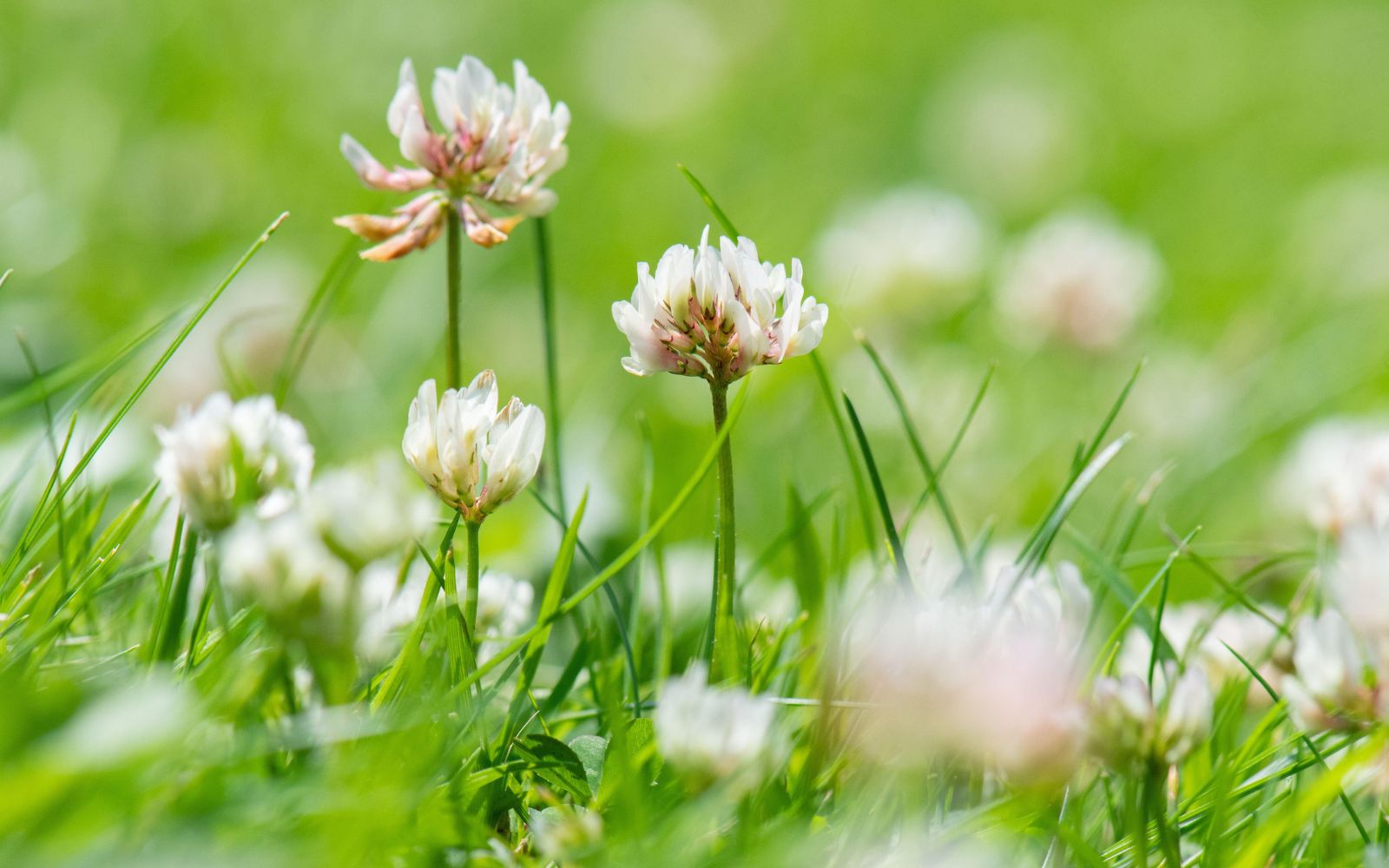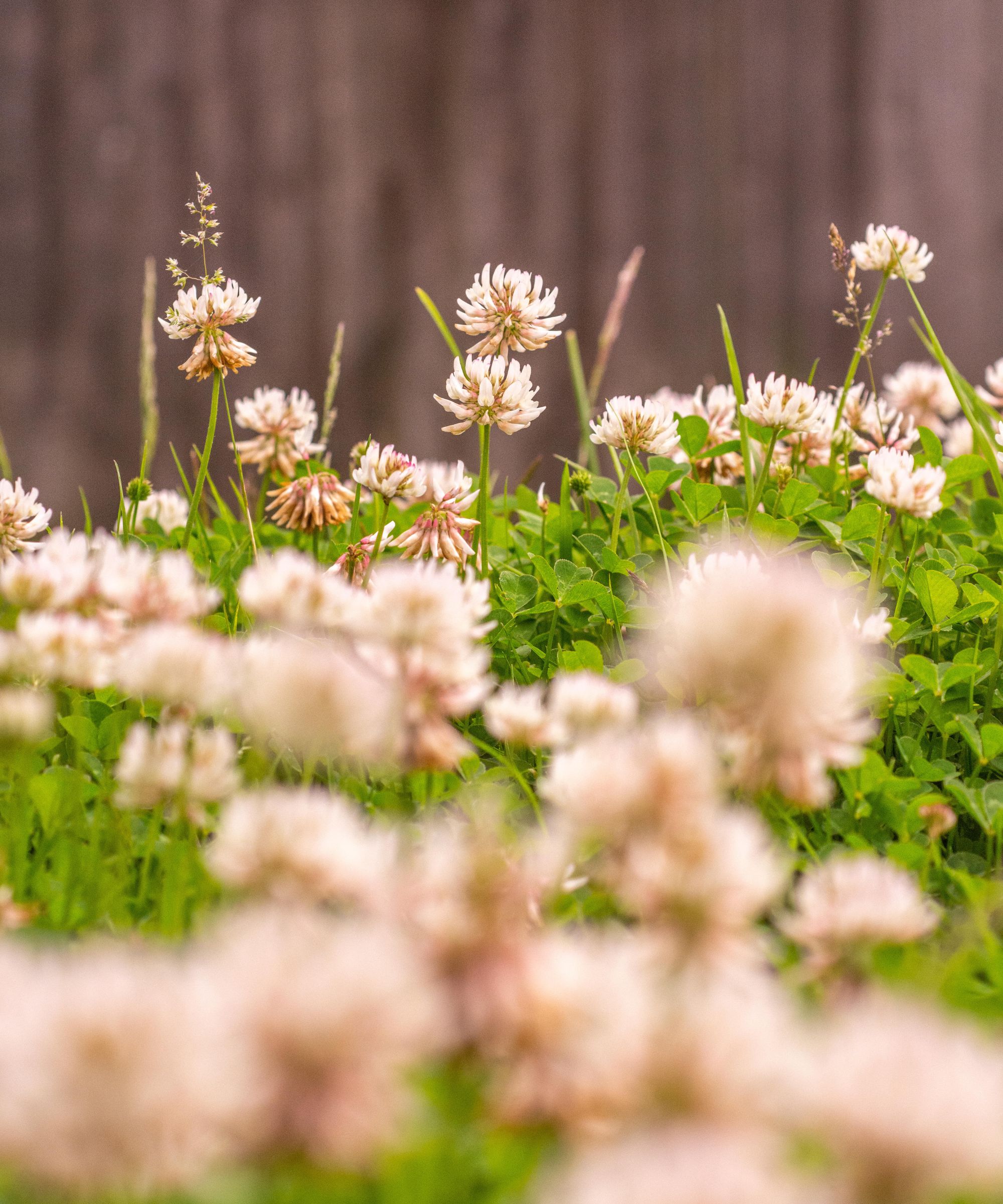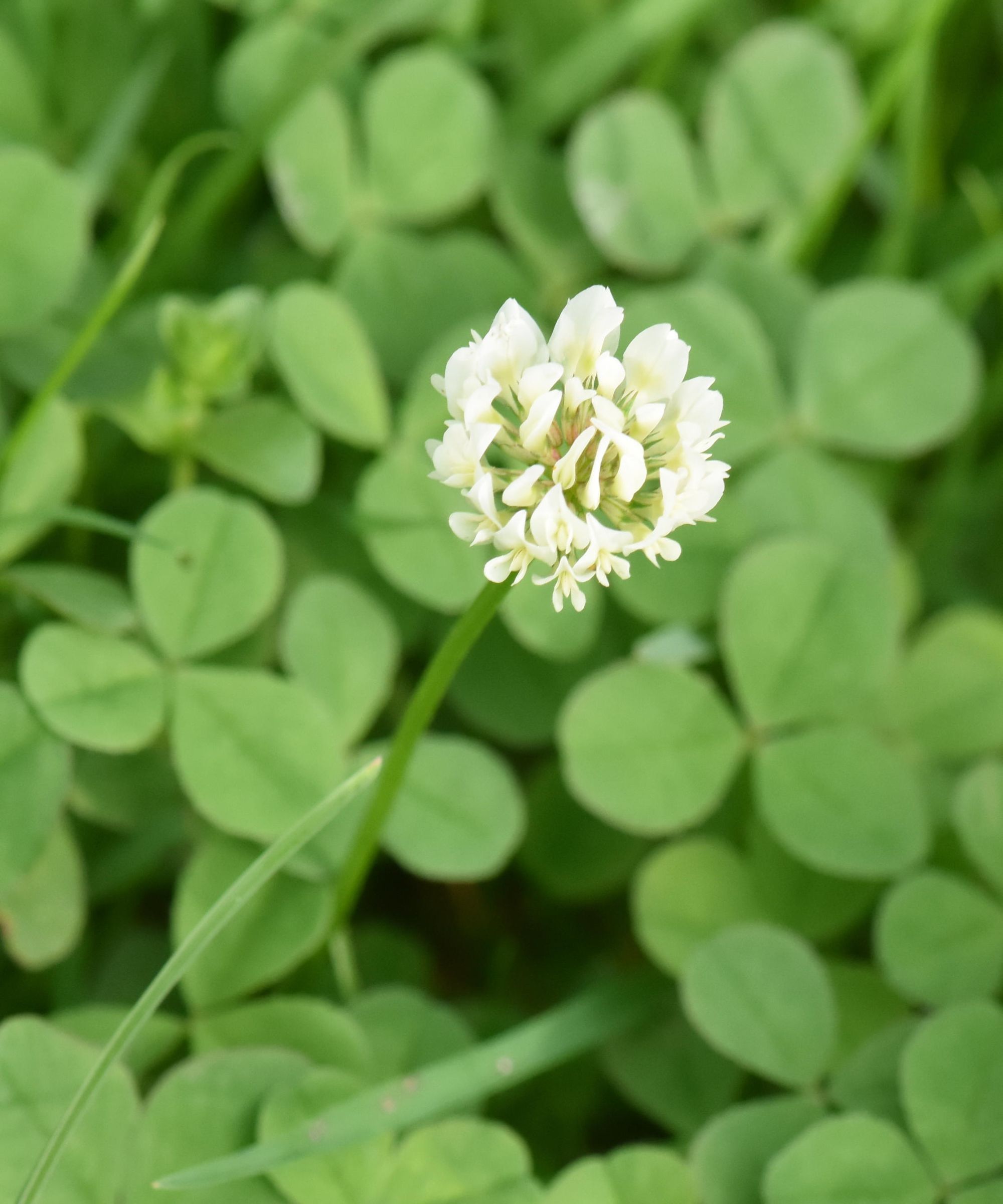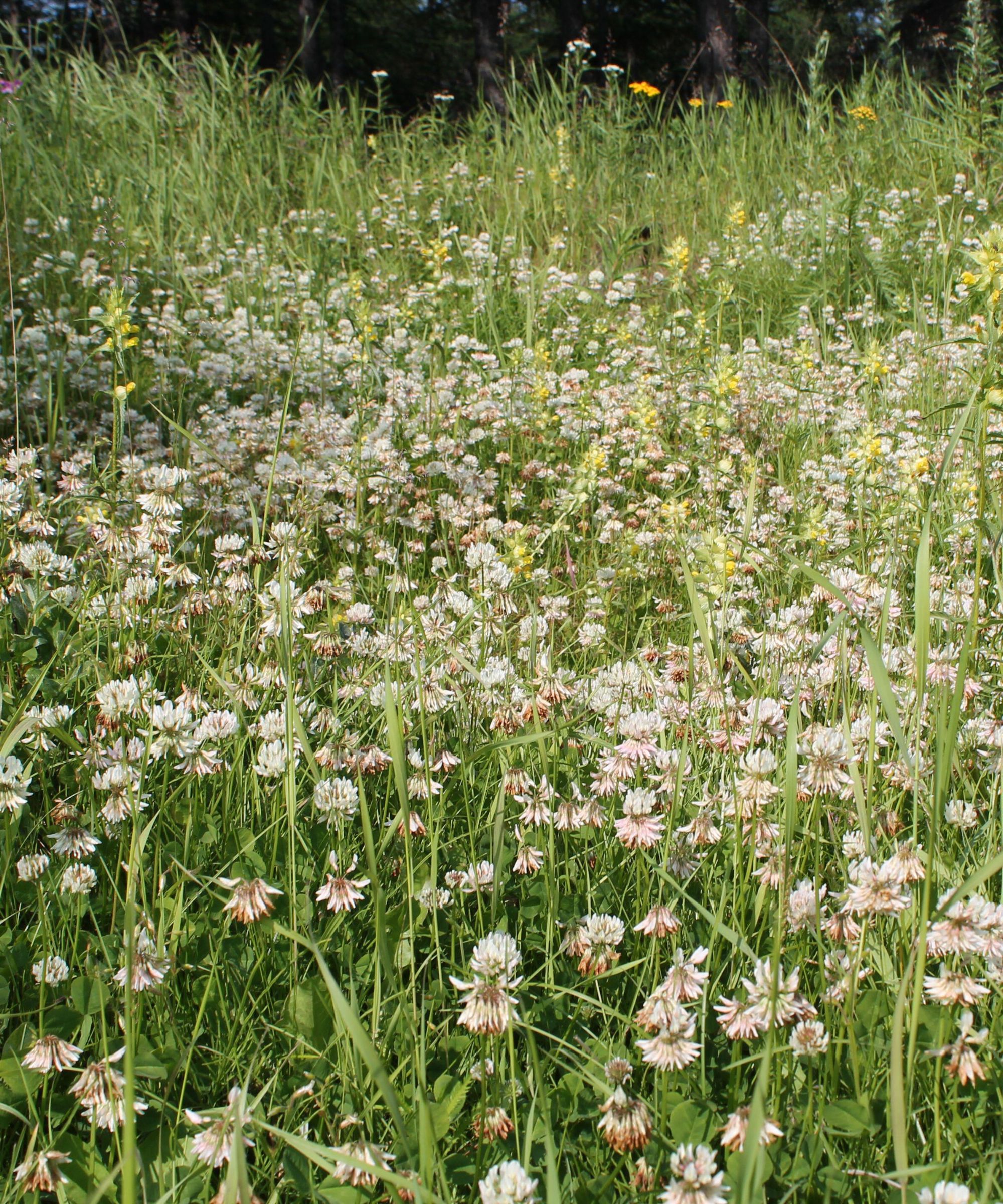Growing a clover lawn to cut down on mowing – what to know about the popular alternative
Increasingly more gardeners are choosing clover lawns over traditional patches – and it's easy to see why


A perfectly manicured lawn is always going to have its appeal, especially on a summer's day when it can be admired in all its pristine glory. However, there is no denying that there is a shift in the air.
The undeniable benefits of a rewilded garden are ever-prominent – not least on TikTok, where a recent study* has announced that 'Clover Lawns' was the popular 'gardening hack' in 2022. Videos that show the process of growing a clover lawn to cut down on mowing have gained 62 million views in the recent year amid the anti-lawn movement and the rise in interest surrounding sustainable garden ideas.
Perhaps the biggest benefit to a clover lawn is its slow growth speed which requires significantly less mowing than a regular lawn. But its benefits don't end there.
Here's everything you need to know about a clover lawn – and how to bring one into your garden – according to those in the know.

Why grow a clover lawn?
Alongside the fact that clover is a low-growing plant (and therefore requires less mowing than grass), clovers have fertilizing qualities that will make your garden soil healthier.
'Clover is a nitrogen-fixing plant, so it can help fertilize your soil and reduce the need for chemical fertilizers,' says Rhys Charles, I am the founder and CEO of Mower On the Lawn. He adds that clover is also tolerant of drought and shade, meaning it is a good option for gardens that face difficult growing conditions.
Expert Taylor Galla from Garden Aider agrees. 'Clover is a natural fertilizer, providing essential nutrients to the soil that can help improve its quality. This means that you don't need to use chemical fertilizers to keep your clover lawn looking its best,' she says. So, while you may have wondered how to get rid of clover on a lawn, the growing awareness of its benefits may make you rethink your choice.
Design expertise in your inbox – from inspiring decorating ideas and beautiful celebrity homes to practical gardening advice and shopping round-ups.
'Clover lawns are also great for attracting beneficial insects to your garden. Clover flowers are a great source of nectar and pollen for attracting bees, butterflies, and other beneficial insects. This can help create a healthier ecosystem in your garden, as these beneficial insects help to pollinate your plants and control pests,' Taylor says.

How to grow a clover lawn
Growing a clover lawn is a simple way to create a wildlife garden without having to use a lot of water and resources. But what does this low-maintenance garden idea involve? These steps are a great place to start.
1. Choose a clover variety
To begin, Taylor recommends finding the best type of clover for your garden. 'There are a few different types of clover that you can choose from, including white, red, and Dutch clover,' she says. 'Each variety has its own characteristics, so consider your location and climate before making a decision.'
2. Get rid of existing grass
Before planting your clover, you will need to remove any existing grass that would be in its way. This can be done with your best lawn mower, but in some cases, you may also need to use a weed killer to get rid of stubborn grass.
3. Prepare the soil
There are two main preparation steps to get your soil ready for the clover. Firstly, you need to till the soil to help with drainage and ensure the clover will have enough nutrients to survive.
After this, you should add some organic matter, such as compost or manure, to the soil. 'This will help the clover take root and provide the necessary nutrients for growth,' Taylor says.
4. Plant and water the clover
Once you have finished preparing the soil, it is time to plant the seed. Taylor recommends spreading the seeds evenly over the area before covering them with a thin layer of soil.
She recommends watering the clover regularly, 'but make sure to not over water as this can lead to rotting.'
5. Fertilize
'Fertilizing your clover lawn is important for its health and growth. Use a fertilizer that is specifically designed for clover (with very low or no nitrogen concentration) and apply it according to the directions,' the expert says.

Does clover need to be mowed?
Yes, while you are required to mow less than a traditional lawn, it is important to keep the area mowed and trimmed to ensure the clover is healthy and looking neat. Taylor suggests using a sharp mower blade to ensure a nice clean cut.
*TikTok study by Admiral.

Megan is the Head of Celebrity Style News at Homes & Gardens, where she leads the celebrity/ news team. She has a history in interior design, travel, and news journalism, having lived and worked in New York, Paris, and, currently, London. Megan has bylines in Livingetc, The Telegraph, and IRK Magazine, and has interviewed the likes of Drew Barrymore, Ayesha Curry, Michelle Keegan, and Tan France, among others. She lives in a London apartment with her antique typewriter and an eclectic espresso cup collection, and dreams of a Kelly Wearstler-designed home.